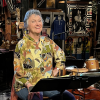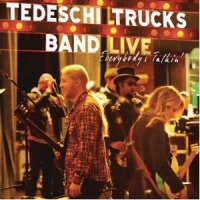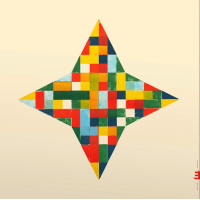Home » Jazz Articles » Album Review » The Susan Krebs Band: Everything Must Change
The Susan Krebs Band: Everything Must Change
On Everything Must Change, the third album to date by singer Susan Krebs and her band, some parts fit together neatly, others somewhat less so. As Krebs's name is on the marquee and her bio is impressive, a few words about her are in order. Before moving to Los Angeles several years ago, Krebs began her career as an actress/singer in off-Broadway plays and musicals while performing with the improvisational theatre company War Babies. She has acted on television, in films, in radio and TV commercials, headlined her own solo musical revue and performed in a contemporary opera. Jazz singing was always close to her heart, and she studied with Sue Raney and Sheila Jordan. As a vocalist, Krebs has a warm, midrange and slightly husky voice that rests easily on the ear, and her lyric approach is pleasingly ingenuous and informal.
Krebs earns high marks for choosing compatible teammates (the band is superb) and for going out of her way to unearth songs that have not been overdone, either by jazz singers or anyone else. Alas, when songs are so seldom performed it's usually for good reason, and what should have been one of the album's strengths is actually a weakness. The opener, Freddie Hubbard's "Up Jumped Spring," is splendid—as an instrumental—and Abbey Lincoln's modest lyrics add little to the song's innate charm. Kurt Weill's "Lost in the Stars" and Billy Strayhorn's "A Flower Is a Lovesome Thing" (is "lovesome" really a word?) are similarly unimpressive, while Dave Frishberg's "Wheelers & Dealers" and "Our Love Rolls On" are by no means among his more memorable themes.
That leaves Cole Porter's "What Is This Thing Called Love" (passable), Bernard Ighner's "Everything Must Change" (the album's most engaging number) and the ambiguous finale, "Are Ya Havin' Any Fun?," which raises the question of tempo and mood (it meanders far too slowly, and what is meant to be playful sounds contrived).
Even though some of the songs may be less than inspiring, Krebs brings out the best in them, and Things Must Change is worth hearing for her talents and those of her first-rate band.
Track Listing
Up Jumped Spring; What Is This Thing Called Love; A Flower Is a Lovesome Thing; Everything Must Change; Lost in the Stars; Wheelers & Dealers; Our Love Rolls On; Are Ya Havin; Any Fun?
Personnel
Susan Krebs
vocalsSusan Krebs: vocals; Chuck Manning: tenor, soprano sax; Rich Eames: piano; Ryan McGillicuddy: bass; Jerry Kalaf: drums. Special guests — Steve Huffsteter: trumpet (8); Riner Scivally: guitar (8); Scott Breadman: percussion (8).
Album information
Title: Everything Must Change | Year Released: 2012 | Record Label: GreenGig Music
Tags
PREVIOUS / NEXT
Support All About Jazz
 All About Jazz has been a pillar of jazz since 1995, championing it as an art form and, more importantly, supporting the musicians who make it. Our enduring commitment has made "AAJ" one of the most culturally important websites of its kind, read by hundreds of thousands of fans, musicians and industry figures every month.
All About Jazz has been a pillar of jazz since 1995, championing it as an art form and, more importantly, supporting the musicians who make it. Our enduring commitment has made "AAJ" one of the most culturally important websites of its kind, read by hundreds of thousands of fans, musicians and industry figures every month.




















